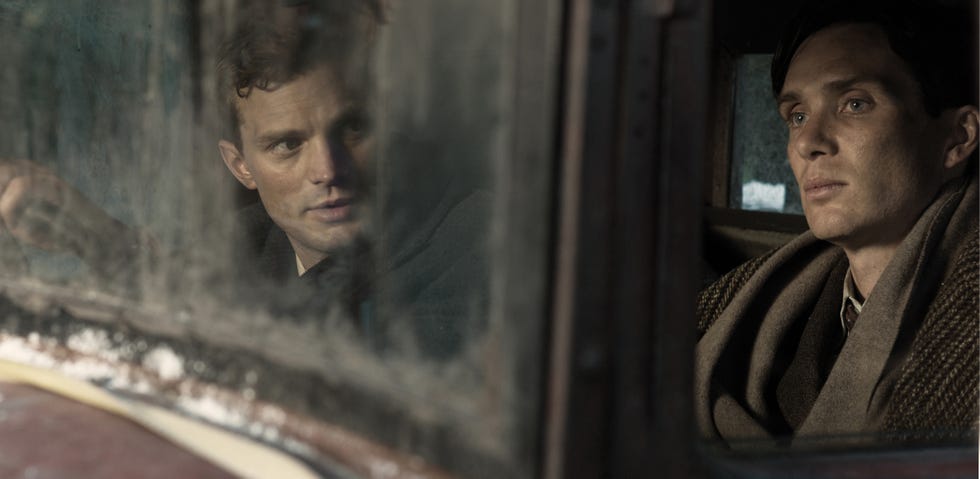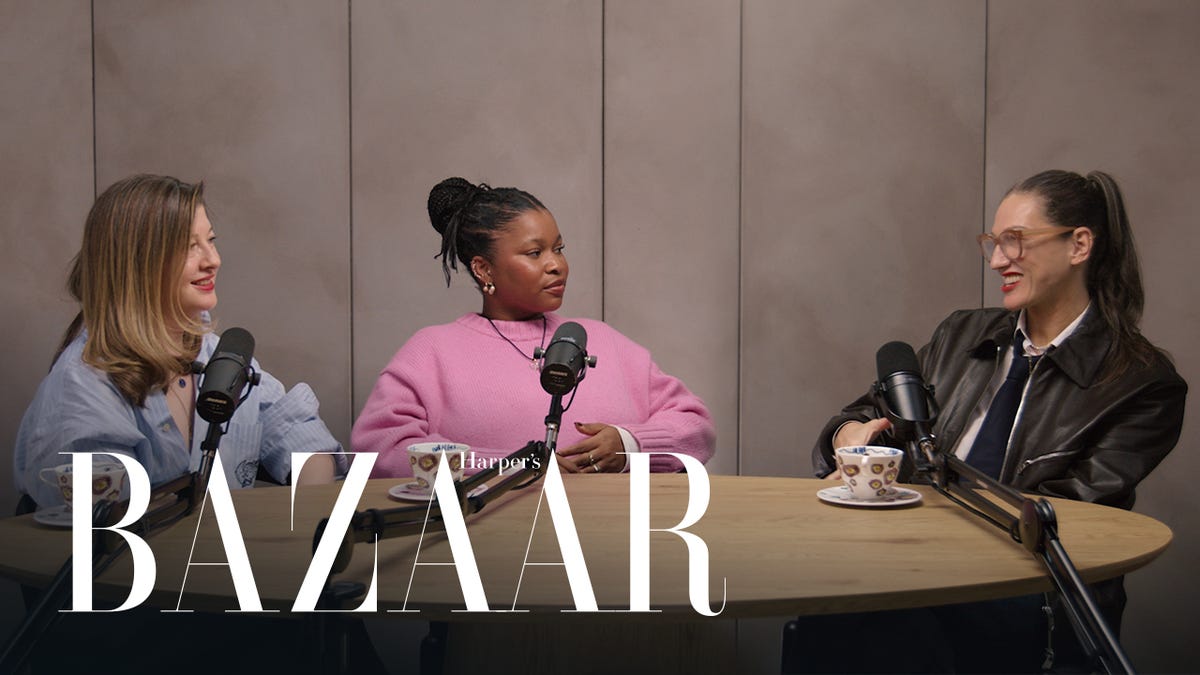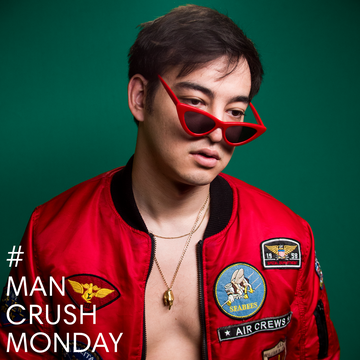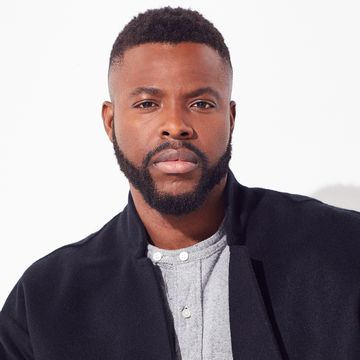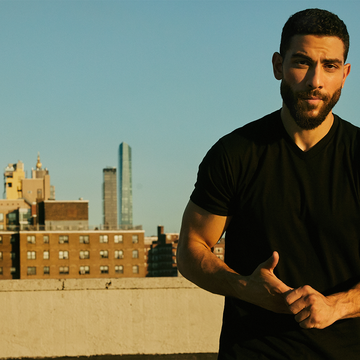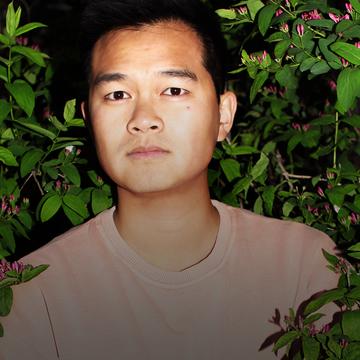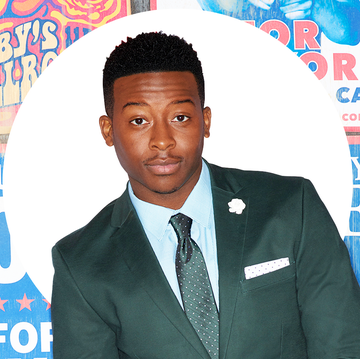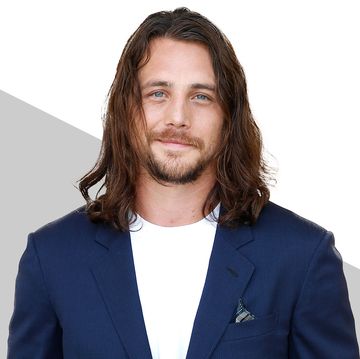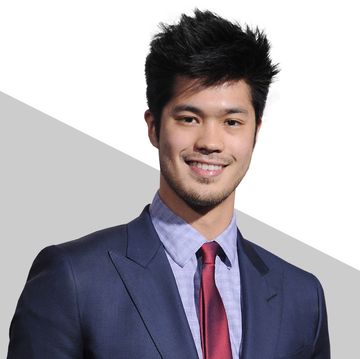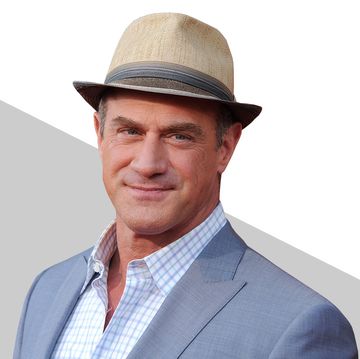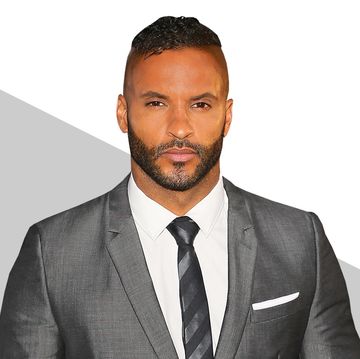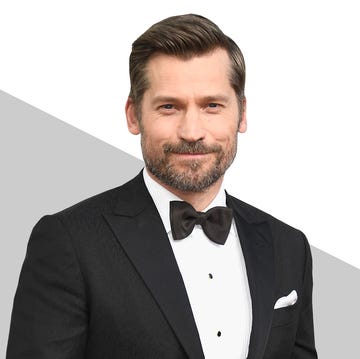If you're finding the wait for Season 4 of Peaky Blinders unbearable, Cillian Murphy has some bad news for you: "I haven't seen any scripts," he says, when I press him for details about the future of Tommy Shelby. Not like he would've had time to read them anyway. The 40-year-old Irish actor has been busy between seasons of the BBC/Netflix crime drama, which counts celebs from Snoop Dogg to Stephen King among its fans. Shedding the Birmingham gangster's steely glare and razor-lined newsboy cap, Murphy has a slew of movies lined up to keep fans satisfied until Peaky returns sometime next year.
First up is Anthropoid, named for the World War II mission to assassinate Hitler's third-in-command, Reinhard Heydrich (aka "The Butcher of Prague"). Murphy and Jamie Dornan co-star as Czechoslovakian soldiers tasked with sneaking back into their home country to carry out the plan. While you probably didn't learn about this operation in European history class, it had an enormous effect on the Czechoslovakian people. "Shooting the movie there, you can't help but feel it. It's everywhere around you," says Murphy. "It did change the course of the second World War, which then changed the course of history."
After that, Murphy is taking on yet another World War II project, this time with director and frequent collaborator Christopher Nolan. Dunkirk dramatizes an early battle in the war and co-stars Tom Hardy, Mark Rylance, Kenneth Branagh and Harry Styles. Then, of course, there's Peaky Blinders. Murphy assures me he knows nothing about the plot or even the shooting schedule, and that's fine by him: "I like the unpredictability of it. I know the character so well now but I never know where he's going to turn up." Below, Murphy opens up about working with Dornan, his possible return to the stage and making the transition from film to TV:
Harper's BAZAAR: Did you know anything about this story before you made Anthropoid? It's a huge part of World War II history but not many people know about it.
CM: I didn't know anything about it, but Sean Ellis, who wrote the movie and directed it, lived with this story for 10, 12 years, so he's amassed a huge amount of material and research on it. He gave that to me and Jamie and we were able to dive in and educate ourselves.
HB: It's a hugely important part of Czechoslovakian history. Did you feel pressure to get it right for the Czechoslovakian people?
CM: I guess less pressure but more of a sense of responsibility to get it right. It's a huge thing for the Czech people, it's a huge part of their history and they're very proud of it.
HB: What was it like working with Jamie Dornan?
CM: We're lucky that we get on very well. We actually have a very similar approach to working, which is that you take the job very seriously and between action and cut, that's where your focus should be. And then there's a lot of levity in between and a lot of good fun. And you know, both being Irish, and we both have young families, we have a lot in common.
HB: You have similar career trajectories as well, each having successful TV shows alongside a film career.
CM: I guess so. But I was making films for a long time before I did Peaky Blinders. It only happened three years ago.
HB: Was going from film to television a weird transition for you?
CM: It wasn't, actually. For me it's always been about the stories, not what medium. The medium is secondary to the stories. I started off in theater; I did exclusively theater for four or five years. In the last few years, television has come along but I can still make film. I feel very privileged that I can move between them.
HB: Do you have any plans to go back to the stage any time soon?
CM: No! I did a play two years ago. I enjoyed it tremendously but I think for me with theater, I need to take a break and then fall in love with it again. And then go do it again.
HB: You fall out of love with theater when you finish a show?
CM: I think you fall out of love with it while you're doing your eighth show of your eighteenth week and your body is saying, "Please make this end."
HB: I've always wondered about that—where do you find the stamina?
CM: I absolutely adore it. It's the only time as a performer, as an actor, you get to do a live thing. And that's why for me it's strange for actors who don't do theater, because it's the only time they'll ever have the live experience. For everything else, the editor and director make the performance. So it's essential to me, theater, but at the moment I'm having a little hiatus.
HB: Tell me about filming Dunkirk. The trailer came out recently and the Internet is very excited about it.
CM: It was great. Me and Chris [Nolan, the film's director] go back so it's great to work with him again. I think it will be a pretty sensational film.
HB: What's it like working with Christopher Nolan on a film that's based on true events, as opposed to one of his high-concept movies?
CM: There's no difference, really. Chris has always been the same. He's probably the most rigorous and dedicated filmmaker I've ever come across. He's also essentially an old-fashioned filmmaker. He doesn't use CGI, he doesn't use 3G, he shoots on film—he shoots on Imax, in this case. All in Imax. He is always there right beside the camera, with the actors, never behind a monitor. You feel so safe being directed by someone of that talent. I feel very lucky to have worked with him over the years.
HB: You seem to be gravitating toward period pieces; first Peaky Blinders and Anthropoid; now Free Fire and Dunkirk coming soon. Is that on purpose? Are you interested in a particular period of time?
CM: No. Actors' careers are random with a capital "R." A few years ago I did a couple of science fiction films and everyone went, "So you seem to be interested in science fiction, tell me why." They're the scripts that arrive and they're the best scripts around at the time. Free Fire is set in the '70s, Anthropoid and Dunkirk are the war, but it's not conscious. It's purely haphazard.
HB: Do you know anything about Season 4 of Peaky Blinders yet? Have you seen scripts, do you know when you start shooting?
CM: I know we start shooting in the beginning or middle of next year. I haven't seen any scripts and I haven't sat down with Steve Knight yet to talk about what's happening. But I like that.
HB: You've said Tommy Shelby is the character who is least like you. How difficult is it for you to get into his frame of mind before you go off to shoot for four months?
CM: It takes a while. With some films you can sort of slide in, get a haircut and you're in. With him, it takes a good six weeks before I feel confident to walk in his shoes.
HB: How do you prepare for that?
CM: Well, you know, I'm a skinny Irish guy. I gotta to go to the gym and try to change physically for it, and get to where he can handle himself and do all that. That's really not me. And that relentless determination and focus that he has? Again, it's not me [laughs]. Also it's a very, very talk-y script, so you have to do a lot of work and a lot of rehearsal. But I enjoy it. It's a gift of a character. I really love playing him.
HB: Why do you think you're drawn to such dark characters, like Tommy Shelby?
CM: For me, drama is conflict. I'm not interested in a good man's life. I'm interested in contradiction. I'm interested in pressure, I'm interested in duress. All the great works of art, or film or literature, in my opinion, have elements of those in them. Because who wants to write about happy people?
HB: Do you shut him off completely when you're in between seasons, or do you have to keep him and that mindset somewhere in the back of your head?
CM: Well, no. I leave him behind because I go off and play other characters and it's important that you can shake it off totally. But then I became a producer on this series [Season 3], so you're kind of involved in the machinations of it, before the show and during it. It's always there, thinking about it. But the thing that I am most proud of about that show is that it started off as this very small little thing and it's grown in the right way, just by word of mouth, not by huge billboards or anyone forcing you to watch it. Our advertising was just: people liked it. It's grown very gradually and sort of—I hate using the word—organically.
HB: Would you say Season 3 felt like the biggest to date?
CM: There was a massive sense of anticipation between the second series and third series because, for whatever reason, there was a year or 18 months between them. For the first time, also, it felt global, that people all over the world were watching it rather than just at home [in the U.K.], you know?
HB: Unlike seasons past, you shot all six episodes of Season 3 simultaneously. Do you think that was a more effective way to work?
CM: No. I mean, it's not a nice way to work as an actor. I would prefer not to do that, but I think economically it perhaps makes sense. But it's a real mind f*ck when you're trying to play, or navigate, a character's arc when you're doing Ep 1 in the morning, Ep 4 in the afternoon. It's not ideal. But then it's very rare you get to shoot anything chronologically.
HB: Is there anything in film or TV you're currently obsessed with? Do you binge-watch anything?
CM: I don't. We've just moved houses so we haven't had a TV in ages, so I haven't watched anything. I'm terrible. I'm the wrong person to talk to, I really don't know a thing. I like watching film, I go to the cinema, but a lot of times I go to see kids' films. But I'm friends with a lot of writers and cinematographers and you'll find they generally don't watch it that much. I know for example, Steven Knight, who writes Peaky Blinders, hasn't seen anything. He hasn't watched anything. I mean, he's watched the classics, but if you ask him about anything contemporary, he'll be like, "No, I haven't seen it."

